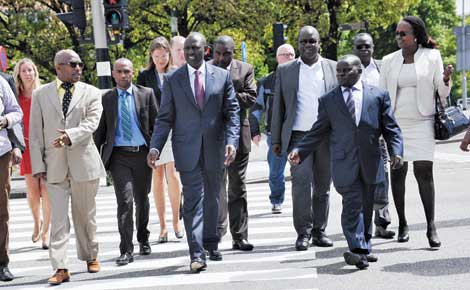×
The Standard e-Paper
Stay Informed, Even Offline
 |
| Nairobi Senator Mike Mbuvi, Deputy President William Ruto and radio journalist Joshua Sang in The Hague, Netherlands, Thursday. [Photo: DPPS] |
By Wahome Thuku and Felix Olick
Nairobi, Kenya: The case against Deputy President William Ruto at the International Criminal Court (ICC) could be dealt a big blow after the prosecution applied to withdraw a crucial witness from testifying.